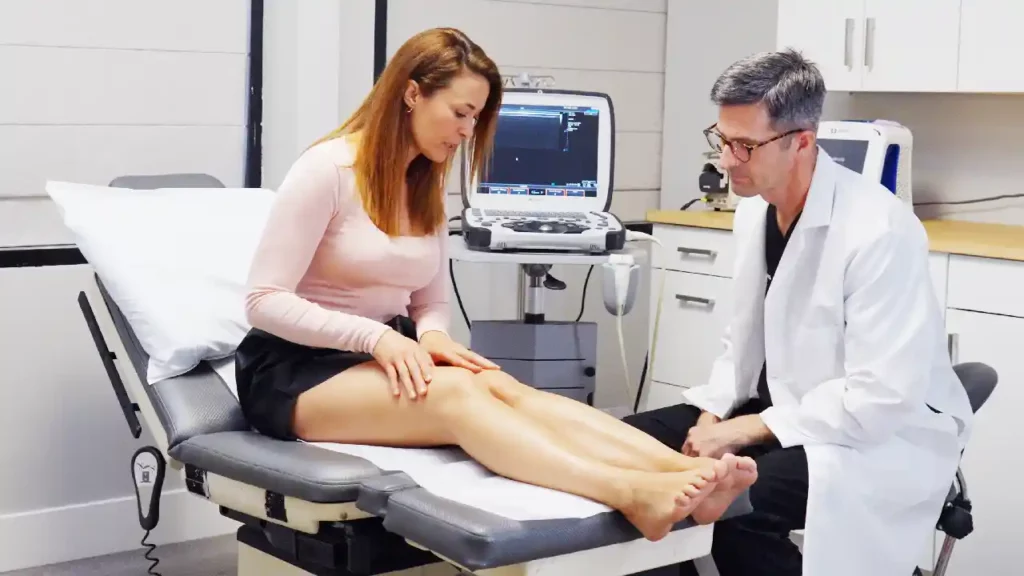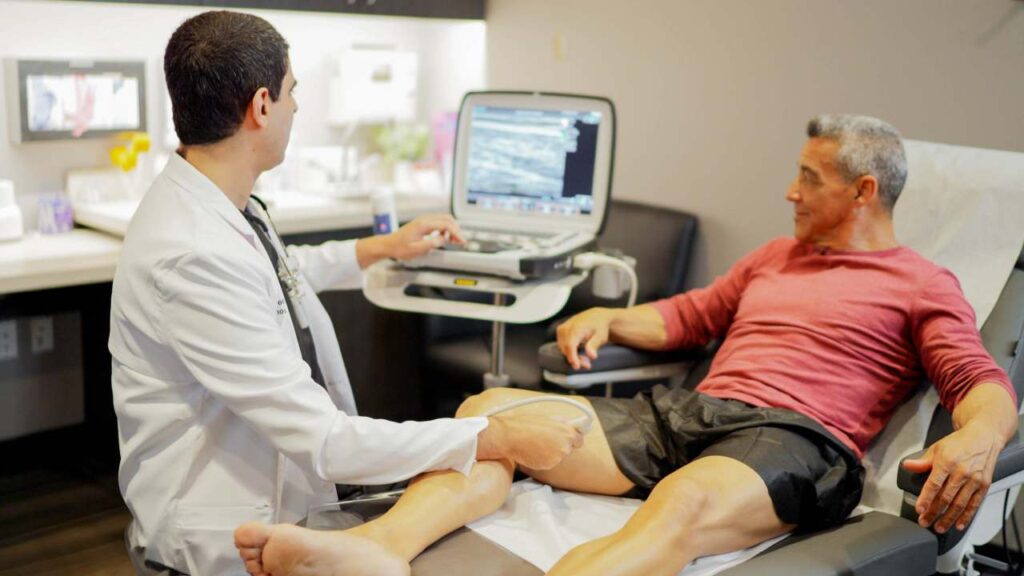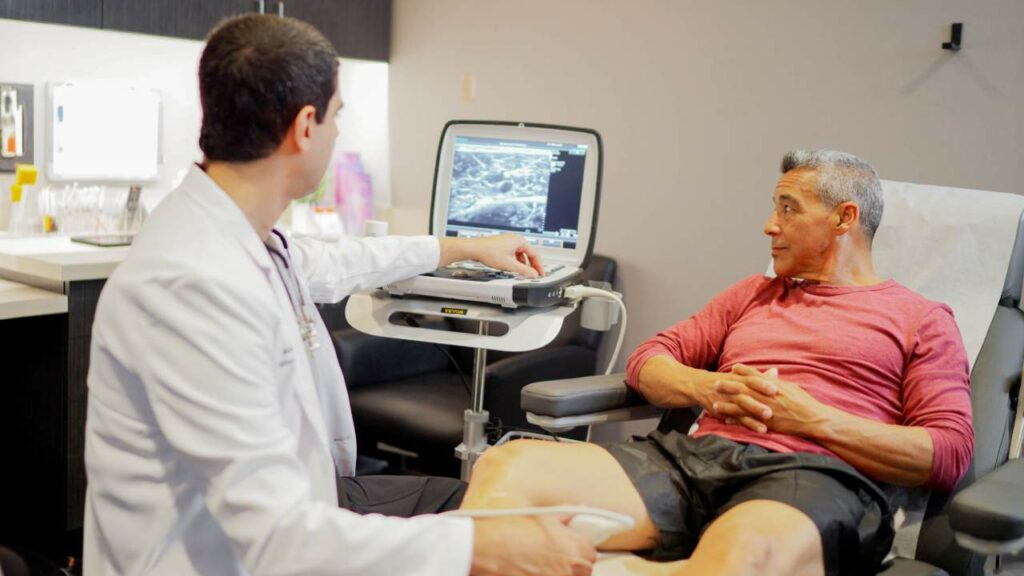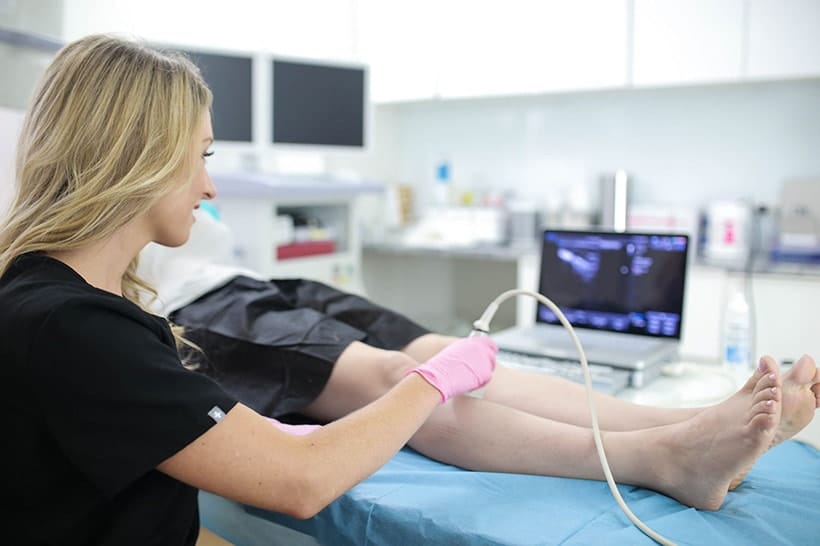The human body has a vast network of veins that help carry blood from all organs to the heart. The veins in our legs and face have the most work to do as they are the furthest away from the heart. Veins on the legs have to pump blood against gravity, making their job even tougher.
To prevent blood from flowing back into the legs, veins have valves that close if blood tries to flow backward. But over time, some valves may weaken. When this happens, blood may get collected in the veins, straining against the walls of the veins. This is called Chronic Venous Insufficiency.
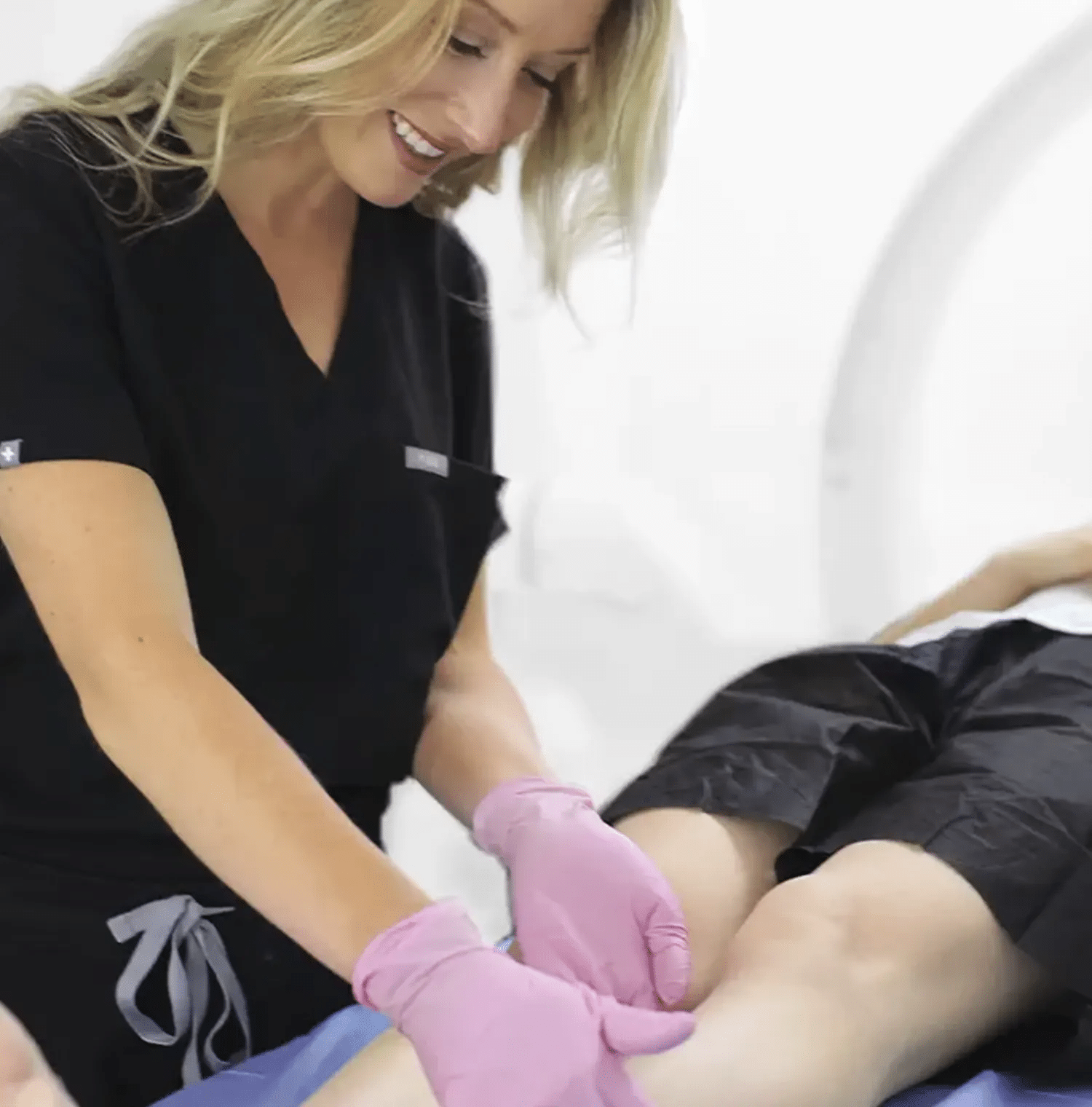
What causes CVI?
Venous Insufficiency is generally a result of either blood clots or varicose veins. Blood clots and varicose veins are caused by a number of controllable and uncontrollable factors. Controllable factors include:
- Smoking
- Obesity
- Poor Diet
- Work or lifestyle involving prolonged standing
- Excessive drinking
- Lack of exercise
Uncontrollable factors include:
- Gender: Women are more likely to develop Chronic Venous Insufficiency.
- Genetics: Family history of Chronic Venous Insufficiency increases the likelihood of also getting CVI.
Pregnancy: Pregnant women are more likely to get CVI, especially if it is their second or third pregnancy.
Can CVI affect the heart?
Venous Insufficiency affects the flow of blood in the legs; but does not have an impact on the health of the heart, or result in existing heart problems to worsen. On the other hand, existing heart problems can cause venous insufficiency, depending on how severe the heart problem is. This is because if the heart does not push blood through the body effectively, it can increase the pressure on the veins of the legs to push the blood, and thus increase the risk of Venous Insufficiency.
How can I manage/treat CVI at home?
If you have CVI, you must seek a doctor’s advice on treatment; CVI does not resolve itself without medical intervention. There are, however, certain things you can do to manage or slow CVI’s progression.
Exercise is good for your overall general health, including for recovering from venous insufficiency. Exercising regularly helps get your heart pumping and keep the blood circulating normally. Exercise that strengthens the calf muscles is especially important because the muscles in your calves must work the most against gravity to help the veins push blood back to the heart. This means that walking, in particular, is very good for venous insufficiency. Doctors will recommend that patients with venous insufficiency walk 30 minutes a day every day if possible, even if it is only to a grocery shop and back.
Obesity is one of the factors that cause Venous Insufficiency. If you already have Venous Insufficiency, losing weight cannot reverse or cure the damage that is already there in your veins, but it can help slow down the progress of the disease and ease some of the symptoms of Venous Insufficiency. If you are overweight, losing extra weight will decrease the pressure on your legs, and make it easier for your leg muscles and veins to pump blood back to the heart. This means that you may feel some relief from symptoms such as leg pain, fatigue, and swelling. But the weight loss must be achieved through healthy means such as proper diet and exercise and be in line with your doctor’s medical advice.
It is also advisable to quit smoking and excessive drinking. Smoking and excessive drinking of alcohol are bad for not only CVI but for your general health and well-being.
What happens if CVI is not treated?
Chronic Venous Insufficiency is a serious condition where valves in the vein have been damaged and blood cannot flow back to the heart sufficiently. If caught early and if only superficial veins are affected, Chronic Venous Insufficiency can easily be treated with minimally invasive techniques and requiring only local anesthetic. But left untreated, Chronic Venous Insufficiency can lead to serious complications such as blood clots, superficial thrombophlebitis, hemorrhage, and even ulcers. Once deeper veins in the legs are affected, you may need vascular surgery for treatment. It is extremely important to screen for possible Chronic Venous Insufficiency if the symptoms mentioned above arise.
How do I cure CVI?
Innovation and massive advances have meant the development of state-of-the-art technology for vein treatment. Vein treatment procedures have become less and less invasive over the last decade. Most procedures now require only local anesthetics, and some don’t require anesthetics at all. Highly trained vein specialists can use a variety of diagnoses and treatment methods that would work best for you. Depending on your specific needs, our doctors will then recommend minimally invasive spider and varicose vein treatment methods such as endovenous laser surgery, VenaSeal, radiofrequency ablation, and sclerotherapy using state-of-the-art technology that works best for you. Because the procedures are all minimally invasive, you can be treated on an outpatient basis and can easily fit the treatment procedure into your schedule with little disruption to your daily life.
In rare cases, however, surgical treatment may become necessary. This is performed by a vascular surgeon. You must see a doctor at the earliest sign of CVI to prevent this.
The Vein Clinic boasts a team of highly experienced vein doctors who are at the top of their fields and have all been trained at Ivy League universities. All our doctors are fellowship-trained and double board-certified. With cutting-edge, state-of-the-art technology and world-class medical infrastructure at their disposal, these vein specialists use the most advanced procedures to treat their patients. To top it all, our doctors know to keep patients’ comfort ahead and treat them with friendliness, patience, and kindness.
Our vein clinic in San Diego is currently located near the Torrey Pine beach state park, close to the Westfield UTC Shopping Center. Our experienced Harvard-trained vein doctors can offer the best care possible to help you.
